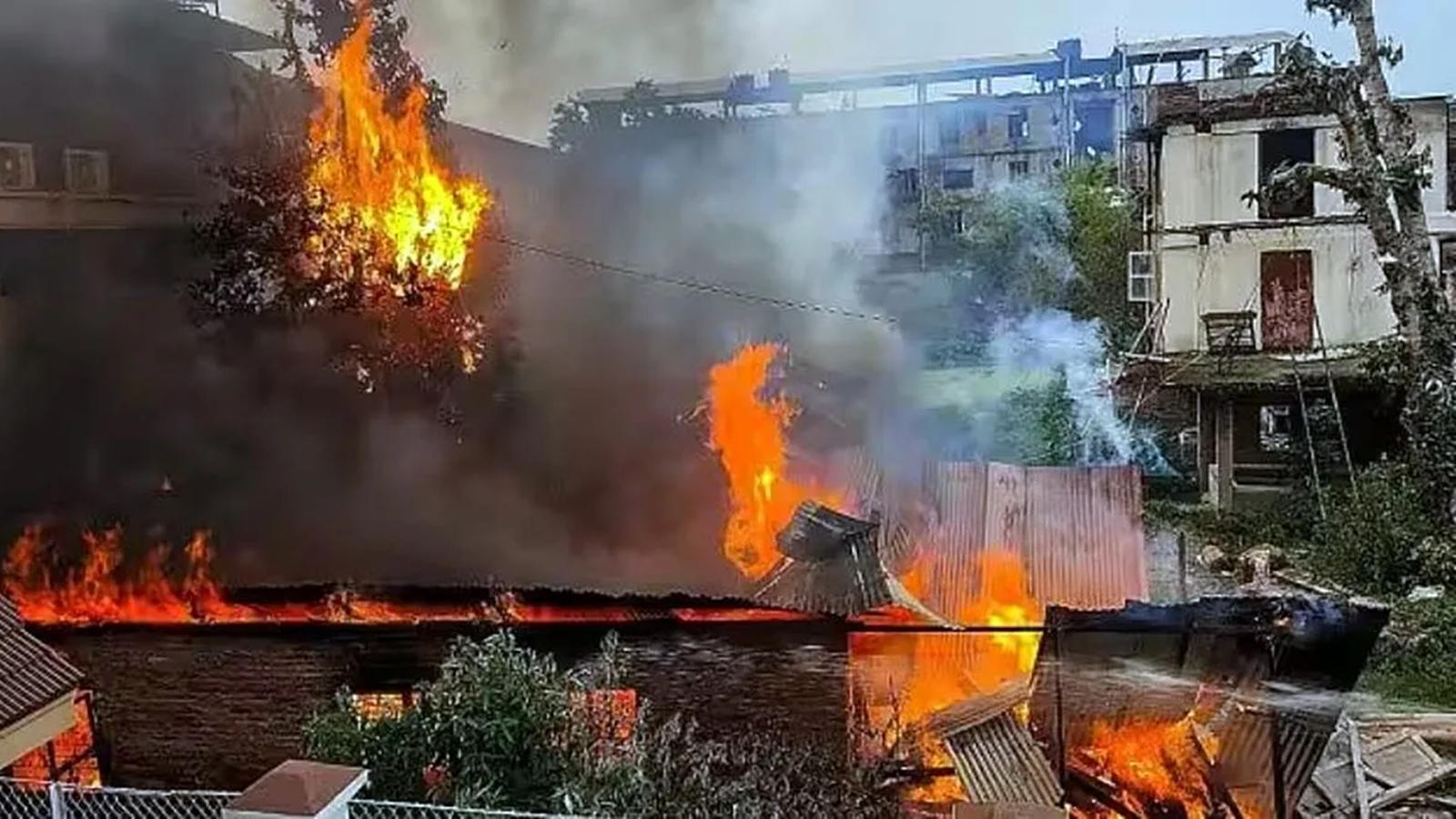
A virus has crept into the structure of policing in Manipur. A virus of Meitei ethnic-nationalism that forces conscience of dutiful policing and allegiance to the Constitution of India to the backseat. A virus of exclusivism that blinds the posse of state security personnel to the illegal act of young men with looted weapons, camouflaged with military insignia and uniform. Several national media reported accounts of how civilians in possession of automatic weapons worked in cohort with state security personnel at several places. Forgery and deception are overlooked as long as it is devised to protect the integrity inspired by the Salai Taret flag. Civil-military relationship has totally taken a fatal turn for the past four months. While a policy of hyper-documentation has been effectively imposed to keep a check on infiltrators at the international border, the regular practice of securitization was deliberately left incapacitated to allow free flow of trigger-happy radicals as they persistently terrorized Kuki villages in their vicinity.
To assert its authority in the frontier regions, the tasks of securitization is a necessity to every nation-state. One significant approach of strengthening militarization is winning the trust of the people in the frontier. The complexity of the borderland site is that of people and culture pre-existing before lines were drawn to mark the power of sovereign states. Therefore, it becomes imperative of nation-states to devise policies and methods of eliciting cooperation and compliance from the people. At least that was one of the objectives when the 2014 conference of the Intelligence Bureau on policing was organized in Guwahati. The Prime Minister was also in attendance in this event that was organized for the first time outside New Delhi. Experts believed that this strategic location was an important hint revealing the centre’s emphasis on decentralization while the Prime Minister emphasized on the need for sensitive policing involving the establishment of strong link with the people. The following year the conference was convened in the Rann of Kutch. The event is an example of how civil-military relationship is an imperative to the securitization of the borderland regions. The people remain an important stakeholder in the processes of securitization of a region. And as surveillance remains an important element of the management of security, a form of civil-military relationship unfolds through a range of sociality dependent on an exclusive repertoire of emotions and affects between the state and its civilian population. A strong network of lateral surveillance develops when the military establishes trust from the civilian population. In many cases this trust can be misused by the dominant section of the society.
The chain of events in Manipur reveals the establishment of an exclusive and partisan civil-military relationship as lateral surveillance involves a troop of Nongshas under the banner of ‘Manipur Kaiba Yaroi.’ This form of surveillance rendered by the public went a long way in stirring communalism. Under the watchful eyes of the Chief Minister, labelling and hatespeech become prevalent as individuals or CSOs seem to acquire impunity to hate and hurt as long as the Kukis remain the object of humiliation. The processes of securitization of Manipur’s international border has developed alongside a widespread paranoia built around the figure of illegal citizenship made synonymous with the Kukis who are perceived as a threat to the demography of the state. In this misgoverned state, the blurry line of separation between agents of law enforcement and those at the receiving end of policing is devised by political rhetoric that has a communal undertone for the past several years. This method of polarizing communities also helped incompetent leaders and elected representatives gain popularity among the masses. Much before May 3, the response of the state, particularly its legal and policing machinery, was always contingent on the identity of the person or group committing the crime. May 3, and the days and months following it, only reveal the symptoms of what ails Manipur.

Thingkho Le Malcha (TLM) is a traditional method of communication used to send out messages across the Kuki hills during the Anglo-Kuki War,1917-1919... more

If you would like to received a free softcopy of Thingkho le Malcha, you can follow our Whatsapp and Telegram by clicking the below links.
For any other media related you can contact us using below email